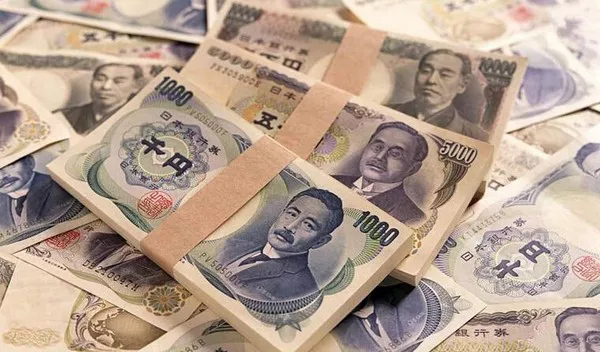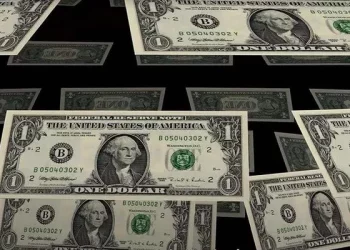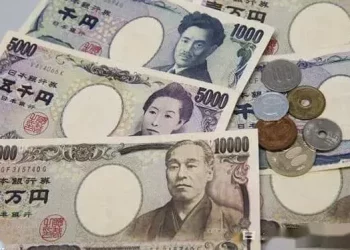Current Exchange Rate:
As of April 29, 2024, the exchange rate for converting Japanese Yen (JPY) to United States Dollar (USD) stands at 0.0063. This figure is crucial for individuals, businesses, and investors engaging in cross-border transactions or planning international travel.
Conversion Calculation:
To calculate the equivalent amount of 9000 JPY in USD, one needs to divide the amount of yen by the current exchange rate. For instance, if the exchange rate is 110 JPY to 1 USD, the calculation would be 9000 / 110 = 81.82 USD.
Factors Influencing Exchange Rates:
Several factors influence exchange rates, including:
Economic Indicators: Economic performance indicators such as GDP growth, inflation rates, and unemployment figures play a significant role. Strong economic performance typically leads to a stronger currency.
Monetary Policy: Central banks’ decisions on interest rates and monetary policies impact exchange rates. Higher interest rates attract foreign investors, increasing demand for the currency and thus its value.
Political Stability: Political stability and government policies affect investor confidence, which, in turn, influences currency value.
Market Sentiment: Market perceptions and expectations regarding a country’s economic prospects can cause fluctuations in exchange rates.
Trade Balances: Trade surpluses or deficits influence currency value. Countries with trade surpluses tend to have stronger currencies, while those with deficits may experience currency depreciation.
Speculation: Speculative trading in the foreign exchange market can lead to short-term fluctuations in exchange rates.
Forecast and Trends:
Forecasting exchange rates involves analyzing various economic indicators, geopolitical events, and market sentiment. While accurate predictions are challenging, financial institutions, analysts, and economists often provide forecasts based on available data and trends. Factors such as interest rate differentials, inflation differentials, and geopolitical tensions can influence short-term and long-term exchange rate trends.
Financial Advice:
For individuals or businesses dealing with currency conversion, it’s essential to monitor exchange rate fluctuations and consider the following strategies:
Hedging: Utilize financial instruments such as forward contracts or options to hedge against adverse exchange rate movements.
Diversification: Spread currency exposure across different currencies to mitigate risk.
Timing: Monitor exchange rate trends and execute transactions when favorable rates are available.
Consultation: Seek advice from financial advisors or currency specialists to develop effective currency management strategies.
Legal and Tax Implications:
Currency exchange transactions may have legal and tax implications depending on the jurisdiction and nature of the transaction. Individuals and businesses should consider the following:
Regulatory Compliance: Ensure compliance with relevant regulatory requirements governing currency exchange transactions.
Taxation: Understand tax implications such as capital gains tax on currency gains or losses.
Documentation: Maintain accurate records of currency transactions for tax reporting purposes.
Economic Indicators:
Key economic indicators that influence exchange rates include:
Gross Domestic Product (GDP): GDP growth reflects the overall economic performance of a country and impacts currency valuation.
Inflation Rate: High inflation rates can erode a currency’s purchasing power, leading to depreciation.
Interest Rates: Central bank interest rate decisions affect currency demand and valuation.
Employment Figures: Unemployment rates and job creation data provide insights into a country’s economic health.
Global Market Impact:
Exchange rate movements have a significant impact on global markets, affecting trade flows, investment decisions, and economic stability. Fluctuations in major currency pairs such as USD/JPY can influence:
International Trade: Exchange rate fluctuations impact the competitiveness of exports and imports, affecting trade balances.
Capital Flows: Investors may reallocate capital based on currency valuation, influencing asset prices and financial markets.
Commodity Prices: Changes in exchange rates can affect commodity prices, particularly for commodities priced in USD.
Global Economic Stability: Exchange rate volatility can contribute to financial market instability and impact global economic conditions.
Conclusion:
Understanding the dynamics of currency exchange rates is essential for individuals, businesses, and policymakers operating in the global economy. The exchange rate for converting 9000 Japanese Yen to United States Dollar reflects the interplay of various economic, geopolitical, and market factors. By staying informed about exchange rate trends, implementing effective risk management strategies, and considering legal and tax implications, stakeholders can navigate currency fluctuations and optimize their financial decisions in an increasingly interconnected world.
Related Topics:

























